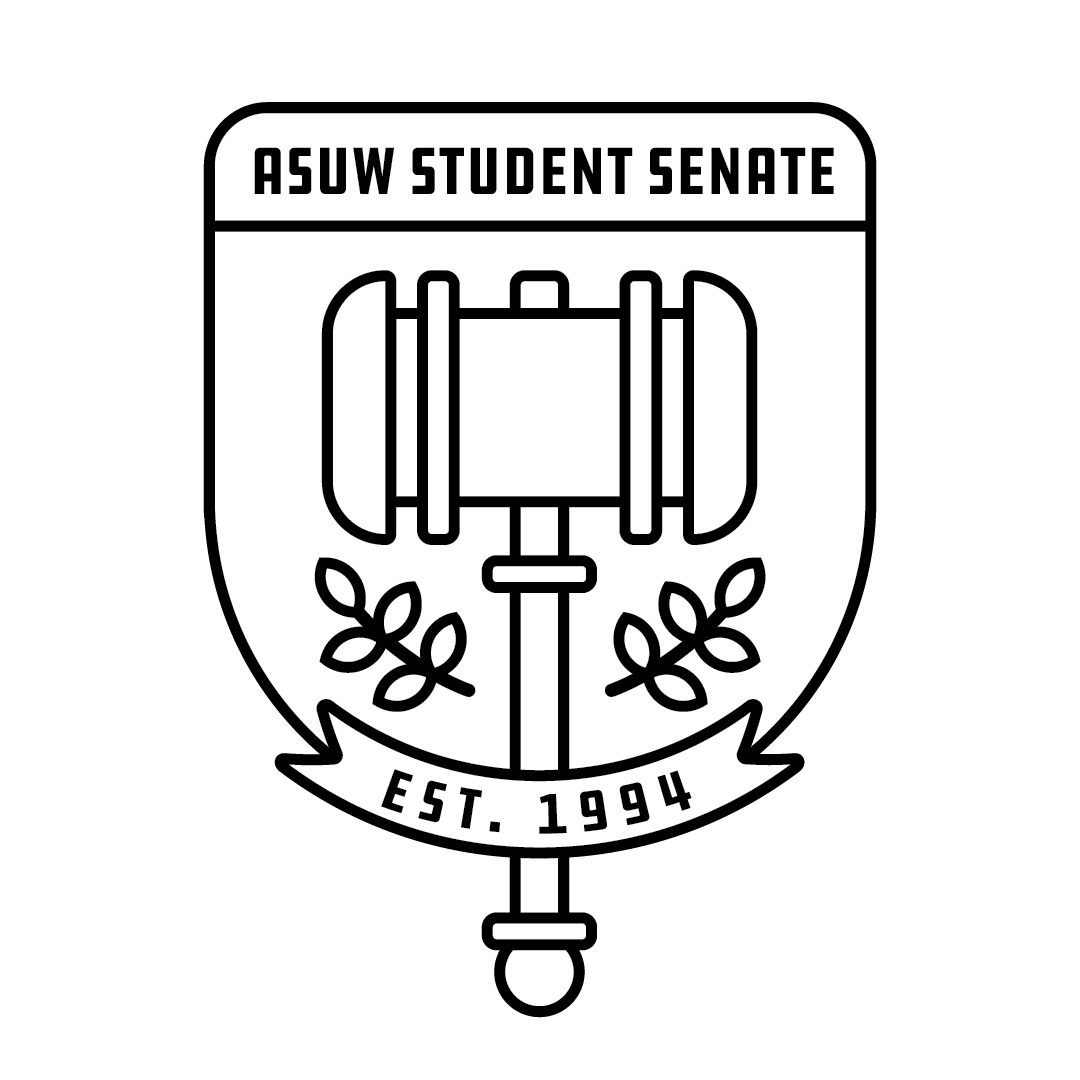Governing Docs FAQs
What documents govern ASUW?
The ASUW Constitution, which was ratified by the student body after the Association’s incorporation in 1906, lays out the rules that various branches including the Senate must follow. By outlining the organization’s structure, the Constitution ensures proper representation of students. The ASUW Bylaws further describe how the organization operates including descriptions of the roles of each Director and powers of several internal commissions/committees. Within the Senate, the Bylaws of the Student Senate play a similar role to the ASUW Constitution, outlining the structure and powers of each officer and committee. The standing Rules of the Student Senate dictate others operational details including the conduct of meetings and consideration of legislation.
What are the ASUW Constitution and Bylaws?
The ASUW Constitution governs the entire student government, not just the Senate, including the Board of Directors, the JCC diversity commissions, and other ASUW entities such as the Office of Government Relations (which coordinates student lobbying) and the Elections Administration Committee (which organizes the spring elections). This document lays out ASUW’s mission, membership, and management, including the meetings of the Board of Directors and the process for budget approval. Senate is discussed in Article IX of the Constitution.
The ASUW Bylaws lay out all the rules that are not covered in the Constitution, including information about ASUW elections, personnel, management of ASUW commissions, and ASUW political activity. While Senate is not covered in the ASUW Bylaws, we send liaisons to many of the committees mentioned in the document and many commissions mentioned in the document send representatives to Senate. Getting involved with these committees and/or commissions is a great way for senators to become more active in their student government and to gain experience outside of Senate.
What is OPMA?
OPMA is the Open and Public Meetings Act, a Washington state law that establishes rules to ensure transparency in how public meetings are run. Because UW is a public university, the student Senate and Steering committee must follow all the guidelines in OPMA.
Major rules established by this Act are that…
- All persons are allowed to attend Senate and Steering meetings, so long as they are not disrupting the meeting.
- The minutes of Senate and Steering meetings are published online.
- The time and location of Senate and Steering meetings must be publicly posted and registered with the OPMA office.
- The Senate and Steering committee can only address action items (i.e. legislation) in public meetings.
- The agenda for each meeting must be posted at least 24 hours in advance.
What is parliamentary procedure?
Parliamentary procedure is a broad protocol encompassing the rules and customs governing Senate meetings. This includes the process for introducing, amending, and voting on legislation. It is intended to allow large meetings like legislative assemblies to conduct orderly business in a way that is fair and allows anyone who wishes time to speak to be recognized.
What is Robert’s Rules of Order?
Robert’s Rules of Order is parliamentary authority utilized by the ASUW Student Senate. It is also the most widely used system in the U.S. which allows senators to gain comfort in a “language” that may be used again in many future career paths. Because it has been designed to keep order in large meetings, RROR naturally prescribes procedures to deal with conflicts that commonly arise in a Senate meeting. FAQs about Robert’s Rules can be found here on the manual’s official website, and a cheat sheet with quick references for motions can be found here.
Where can I find information on the legislative process?
The Senate Rules lay out the process that legislation must go follow prior to final approval in Articles III – VII. Generally, a piece is submitted to the Committee on Senate Steering → First Reading → Committee Hearing → Second Reading → Transmitted to the Board of Directors.
Where can I find information about Senate standing committees?
The Senate Bylaws, Article VII describes standing Committees including Steering, AAA, General Affairs, On-Campus Affairs, Off-Campus Affairs,, Oversight and GAVEL.
Where can I find information about Steering?
The Senate Bylaws, Article VII § 2 describes the role of the Committee on Senate Steering which sets the Senate Floor Agenda and reviews proposals for new legislation among other things.
Where can I find information on Senate elections?
The Senate Bylaws, Article IX govern the process of Senate Officer elections. See Senate Bylaws, Article VIII § 2 for information about liaison elections.
Where can I find information on Senate leadership roles?
The job description for all members of Senate leadership (Speaker, Vice-Speaker, Membership Coordinator, and Clerk) can be found in the Senate Bylaws, Article III.
Where can I find information on debate in Senate?
Senate Rules, Rule II
Where can I find information on voting in Senate?
Senate Rules, Rule VII
Where can I find information on Senate liaisons?
Senate Bylaws, Article VIII
Where can I find information about amending the Rules or Bylaws?
Senate Rules, Rule XII and Senate Bylaws, Article X
Where can I find information about amending the ASUW Constitution?
Senate Rules, Rule IX
Where can I find information about creating a new ASUW commission?
ASUW Bylaws, Article XI § 6
Where can I find information on creating an ASUW task force?
ASUW Bylaws, Article VII § 10
